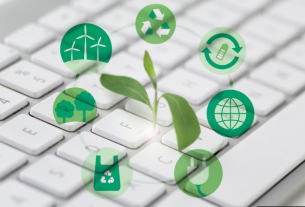Ahead of its hosting of COP29 in 2024, the United Arab Emirates (UAE) has announced an ambitious commitment to reduce its carbon emissions by 47% by 2035. The announcement, made during a high-level event in Dubai, underscores the nation’s increasing focus on climate action and its role as a key player in the global energy transition.
This significant pledge marks the UAE’s continued push towards aligning its energy sector with the Paris Agreement goals and signals its intent to take more decisive action in tackling climate change. With the UAE set to host the 29th UN Climate Change Conference of the Parties (COP29) in 2024, this commitment highlights the country’s strategic position at the intersection of energy production and climate diplomacy.
A Major Step Toward Carbon Reduction
The UAE’s commitment to reduce its emissions by 47% by 2035 comes as part of the country’s broader Climate Change and Environment Strategy, which was developed with the goal of achieving net-zero carbon emissions by 2050. The UAE’s pledge for 2035 builds on the nation’s ambitious vision to transition towards a low-carbon economy and reduce the carbon footprint of its industries, which have traditionally relied on oil and gas.
In addition to cutting emissions, the UAE has committed to expanding its renewable energy capacity, aiming to reduce its reliance on fossil fuels. The country has been investing heavily in solar energy and other clean technologies, with major projects such as the Mohammed bin Rashid Al Maktoum Solar Park—one of the world’s largest single-site solar parks—playing a central role in its strategy.
UAE Minister of Climate Change and Environment, Dr. Sultan Al Jaber, emphasized that the country’s emissions reduction target is not only about achieving environmental sustainability but also about fostering economic growth through the development of green technologies. “This ambitious target reflects the UAE’s commitment to advancing sustainable energy, technology, and innovation as the pillars of our future economy,” he said.
The Path to COP29: A Platform for Global Cooperation
The UAE’s pledge comes as the country prepares to host COP29, the next global summit on climate change, scheduled for December 2024. As the first Arab nation to host the COP conference, the UAE is positioning itself as a leader in climate diplomacy within the Middle East. The UAE’s vision for COP29 is centered on finding practical solutions to some of the most pressing climate issues, including emissions reduction, climate finance, and the transition to renewable energy.
The country’s pledge to cut emissions by nearly half by 2035 is expected to bolster its credibility and influence on the world stage at the conference. As the global energy landscape is increasingly shaped by the need for climate action, the UAE’s leadership on this issue will likely play a pivotal role in pushing for stronger commitments from both developed and developing nations.
Transitioning to Renewable Energy and Green Technologies
Central to the UAE’s emission reduction plan is the rapid expansion of renewable energy and the adoption of green technologies. The UAE has already become a significant player in the solar energy sector, with the aforementioned Mohammed bin Rashid Al Maktoum Solar Park at the forefront of its renewable energy efforts. The country has also invested in nuclear energy, and hydrogen fuel, positioning itself as a hub for clean energy innovation.
By 2030, the UAE plans to increase its renewable energy capacity to 50% of its total energy mix, a key milestone on its path to net-zero emissions by 2050. The government has also outlined a national hydrogen strategy to establish the UAE as a leading exporter of clean hydrogen, which is seen as a critical fuel for decarbonizing industries such as heavy transportation and steel production.
Moreover, the UAE is focusing on developing sustainable infrastructure, including the construction of green buildings, smart cities, and energy-efficient technologies. The country’s commitment to carbon neutrality also aligns with efforts to reduce its dependency on fossil fuels and diversify its economy, which has long been reliant on oil exports.
Regional Leadership and the Middle East’s Climate Future
As the UAE leads the way in the Middle East, other nations in the region are also beginning to focus more on climate action. Countries like Saudi Arabia, Qatar, and Kuwait have started outlining their own emission reduction targets and sustainability initiatives in response to growing global pressure and the increasing recognition that climate change is an urgent issue for all nations, regardless of economic status or geographic location.
The UAE’s leadership on climate action is especially significant in the context of the Gulf Cooperation Council (GCC), where many countries have long relied on oil and gas exports. As one of the world’s largest oil producers, the UAE’s commitment to a green transition signals that even nations with significant oil reserves can lead the way in shifting towards a more sustainable energy future.
The UAE’s climate goals are particularly relevant for the Middle East—a region that is highly vulnerable to the impacts of climate change, including extreme heatwaves, desertification, and water scarcity. By prioritizing emissions reductions and renewable energy, the UAE is setting an example for the region, demonstrating that economic diversification and climate resilience can go hand-in-hand.
Global Climate Cooperation and Financing
The UAE’s pledge also highlights the increasing role of climate finance in the global effort to tackle climate change. As part of its emissions reduction plan, the UAE has committed to increasing its investments in green projects and climate technology development. The country’s leadership role in COP29 will be critical in fostering international cooperation on climate finance, ensuring that funds are directed to the most vulnerable nations and sectors impacted by climate change.
At COP29, the UAE will likely advocate for stronger international collaboration and financial mechanisms to help developing countries transition to low-carbon economies. The UAE’s own investment in clean energy and sustainable development could serve as a model for other nations seeking to balance economic growth with environmental stewardship.
Conclusion: A Bold Vision for a Sustainable Future
The UAE’s pledge to cut emissions by 47% by 2035 is a bold and transformative step towards a sustainable energy future. With COP29 just around the corner, the country is positioning itself as a global leader in climate action and renewable energy development. As the UAE prepares to host this crucial international event, it is clear that the country is not only committed to tackling climate change domestically but also to fostering international cooperation for a greener, more resilient world.
The UAE’s actions serve as a reminder that the transition to a low-carbon economy is not just necessary for global climate stability but can also present significant opportunities for economic growth, innovation, and sustainable development in the Middle East and beyond.
References:
- The National News – UAE’s Carbon Emission Reduction Plan Ahead of COP29
Source: The National News - Reuters – UAE Commits to 47% Emissions Cut by 2035
Source: Reuters - Al Jazeera – UAE to Host COP29 with Bold Climate Goals
Source: Al Jazeera - BBC News – UAE’s Climate Action Pledge: A Roadmap to Sustainability
Source: BBC News

